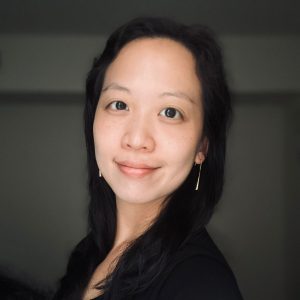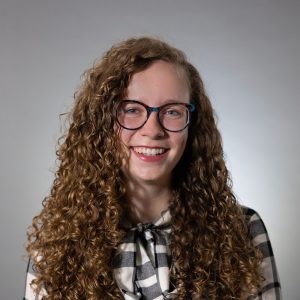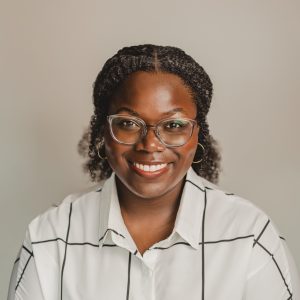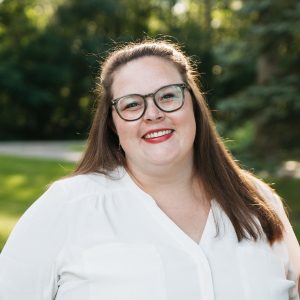School of Education
Education Graduate Association
The Education and HDFS Graduate Association (EGA) is the official student organization of full- and part-time graduate students at the University of Delaware’s School of Education and Department of Human Development and Family Sciences. Officers are elected to EGA each year for a one-year term. Students are granted membership in this association upon acceptance to the School, and its officers are elected from among your peers and colleagues.
The EGA serves as a link to news, information, and events within the school that affects graduate students. It also serves as an advocate and representative to the faculty and administration of the School on matters ranging from quality of life to programs and advising. The EGA also holds events throughout the semester. Connect with them on Facebook.
2025 Officers

President & Communications Committee Member: Amanda Man
Amanda On-Yee Man (she/her) is a third-year Ph.D. student in the School of Education at the University of Delaware, Newark, DE. She completed her B.A. in English Literature and Secondary Education at Washington University in St. Louis and holds a M.S.Ed. in Education, Culture, and Society from the University of Pennsylvania Graduate School of Education. In the years between her studies, she taught secondary English language and literature in the U.S. and abroad. Her research interests focus on the interactions between and within schools, communities, and young people during and after crises and contention.

Vice President, Education Workshops Committee Member: Yubin Jang
Yubin Jang, a third-year Ph.D. student in the Education and Social Policy program at the School of Education and the Joseph R. Biden Jr. School of Public Policy & Administration, delves into various aspects of educational leadership, including its development, pipeline, practices, policies, and the working environment. She holds a B.A. in Education and an M.A. in Education and Educational Administration from Hanyang University in South Korea, where she worked as a research assistant.

Treasurer, Communications Committee Member: Allie Olshefke-Clark
Allie is a third-year Ph.D. in Education student specializing in Mathematics Education. She earned a B.S. in Physics and M.Ed. from the University of Notre Dame through the Alliance for Catholic Education program. Prior to starting at UD, she taught twelfth-grade math and worked as the Associate Research Director for the ACE Ascent Program in Notre Dame’s Institute for Educational Initiatives.

First-Year Representative, Social Events Committee Member: Joy Polk
Joy Polk (she/her) is a first-year Ph.D. student in Educational Statistics and Research Methods at the University of Delaware’s School of Education. She earned her M.Ed. in Quantitative Methods from Vanderbilt University and her B.S. in Psychology, with minors in Mathematics and Cognitive Science, from Villanova University. Before starting her doctoral studies, Joy taught math and science to grades 6–12 in a one-to-one, mastery-based learning environment and contributed to research and evaluation projects with Assessment for Good, Reading Reimagined, and the Center for Rural School Health & Education. Her research explores how quantitative methods informed by critical theories can be used to uncover inequities and promote transformative, equity-centered change in education.

Second Year Representative, Social Events Committee Member: Maggie Ellis
Maggie Ellis is a second year Ph.D. student in the Education program with a specialization in Mathematics Education. She earned her B.A. in Elementary Education from the College of St. Benedict and M.Ed. in Elementary Education from the University of Notre Dame. Prior to joining the program, she taught 4th and 5th grade math/science for nearly a decade. She also taught and supervised novice elementary teachers in the University of Notre Dame’s M.Ed. program. Her research interests center around supporting novice teachers to engage with ambitious teaching practices through curriculum materials in math methods courses.

Educational Workshops Committee Chair: Bita Moradi
Bita is a fourth-year PhD student in Education, specializing in literacy. Her career as a school teacher in Iran drew her into researching language and literacy skills of K-12 students and educating K-12 teachers. Her primary goal is improving educational attainments of multilingual learners (i.e., English learners). Due to the fact that leveraging students’ gains is associated with teachers’ pedagogical practices, she is actively conducting research on teacher education programs. Currently, Bita’s research with her advisor Dr. Adrian Pasquarella pivots around educating Delaware K-12 teachers of English learners.

Communications Committee Member: Mina Sajjadi
Mina Sajjadi is a second-year Ph.D. student in the Education and Social Policy program at the School of Education and the Joseph R. Biden Jr. School of Public Policy & Administration. Her research focuses on teacher professional development and educational policies, with a particular interest in culturally responsive teaching and teacher efficacy.
Mina holds a B.A. in English Translation Studies from Bu-Ali Sina University and an M.A. in Teaching English as a Foreign Language (TEFL) from Tarbiat Modares University in Iran. She has 15 years of experience teaching English as a second language to K-12 students, university students, and IELTS examinees. Additionally, she served as the head of an English teachers’ research community group for one year and as vice-principal and educational technology administrator at various high schools for three years.
Currently, Mina collaborates with Professor Dr. Laura Desimone on multiple studies examining teacher professional development and related educational policies.

Social Events Committee Member: Leigh Hibbard
Leigh Hibbard is PhD student in the School of Education with a specialization in literacy. She holds a Master of Science in Speech-Language Pathology from Vanderbilt University and a B.A. in English Literature from the University of Oklahoma. Before pursuing doctoral studies, she worked as a secondary English teacher and as a speech-language pathologist in the Oklahoma public school system. Her research interests include the impacts of emerging technologies on students’ literacy and language skills, as well as the role of oral language in literacy.



